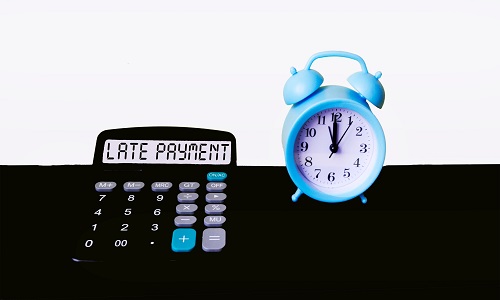Removing Late Payments from Your Credit Report
This comprehensive guide is designed to assist you in navigating the process of removing a late payment from your credit report. It will provide you with a clear understanding of the steps involved, helping you to determine when you can manage the process independently and when it might be beneficial to seek the expertise of a credit report lawyer.
Fixing Late Payments on Your Credit Report
Talk to Your Credit Card Company: Your First Step
Upon spotting an unexpected late payment on your credit statement, reach out to your credit card issuer promptly. It’s akin to disputing an erroneous charge at a store—you want to rectify the mistake swiftly. Arm yourself with your account details and any evidence that corroborates your timely payment. If the company acknowledges an error on their part, they should amend the record and confirm the correction in writing.
Writing a Friendly Letter: Asking for a Little Understanding
If the late payment was a genuine slip due to unforeseen circumstances, consider composing a ‘goodwill letter.’ This personal appeal details your situation, requesting clemency for the oversight. Though success isn’t guaranteed, a history of punctuality can sway the company to make a one-time concession.
You Might Need a Credit Report Lawyer To Remove Late Payments
There are specific situations where you might need to consider getting a lawyer involved:
Unresolved Disputes:
If you’ve tried to fix mistakes on your credit report and haven’t gotten anywhere with the credit bureaus, it might be time to get a lawyer involved. Your lawyer can take your dispute to the next level by writing a formal letter to the credit bureau. This isn’t just any letter – it’s a detailed document that clearly outlines the errors, presents the evidence, and explains why the bureau must correct your report under the law. If the bureau still doesn’t make the changes, your lawyer can start legal proceedings. This puts more pressure on the credit bureau because ignoring legal disputes can lead to court action and possible penalties.
Recurring Errors:
It’s frustrating when you correct an error on your credit report, only to see it pop up again later. If you’re stuck in this loop, a lawyer can help break the cycle. They can make sure the credit bureau not only removes the error for good but also investigates why it keeps happening. If this mistake has hurt your chances of getting a loan or a credit card, your lawyer might also talk about asking for money (called damages) for the trouble it has caused you.
Harassment from Debt Collectors:
Dealing with debt collectors can be stressful, especially if they’re trying to get money from you that you don’t even owe. If they won’t leave you alone, a lawyer can step in and make them stop. The Fair Debt Collection Practices Act (FDCPA) is a law that sets rules on what debt collectors can and can’t do. Your lawyer can remind them of these rules and take legal action if they’re breaking them. This could mean the debt collector has to pay you for the hassle they’ve caused.
Identity Theft:
Identity theft can turn your financial life upside down. If someone has stolen your identity and made charges or opened accounts in your name, a lawyer can guide you through the process of getting your credit report cleaned up. They can contact the credit bureaus, banks, and creditors to prove that you didn’t make those charges and get them removed from your report. A lawyer can also give you advice on how to protect yourself in the future and might even help you take the thief to court.
Credit Denials Due to Errors:
Errors on your credit report can lead to being turned down for loans, credit cards, or even jobs and apartments. If this happens, a lawyer can help correct these mistakes and might be able to get you money for the opportunities you lost because of the errors. They can negotiate with the credit bureau and the creditor who reported the wrong information, and if necessary, they can sue them for not following the credit reporting laws.
Legal Complexity:
The laws about credit reporting can be hard to understand. If you’re having trouble figuring out what your rights are and what the credit bureaus are supposed to do, a lawyer can explain it all in simple terms. They can help you understand your rights under the
Court Representation:
If your dispute with a credit bureau or a creditor ends up in court, you’ll need a lawyer to represent you. Going to court can be intimidating, but a lawyer can build a strong case on your behalf and argue for you in front of a judge. They can handle all the legal paperwork, meet deadlines, and work to convince the court that you deserve to have your credit report fixed. Having a lawyer by your side in court can make a big difference in the outcome of your case.
Conclusion
Late payments on your credit report need not spell perpetual financial distress. Whether through direct communication with creditors, leveraging goodwill, or enlisting legal assistance, you have a spectrum of strategies to rectify your credit history. Proactive fiscal management and understanding when to seek legal counsel can empower you to correct past oversights and chart a course toward a stable financial future.



